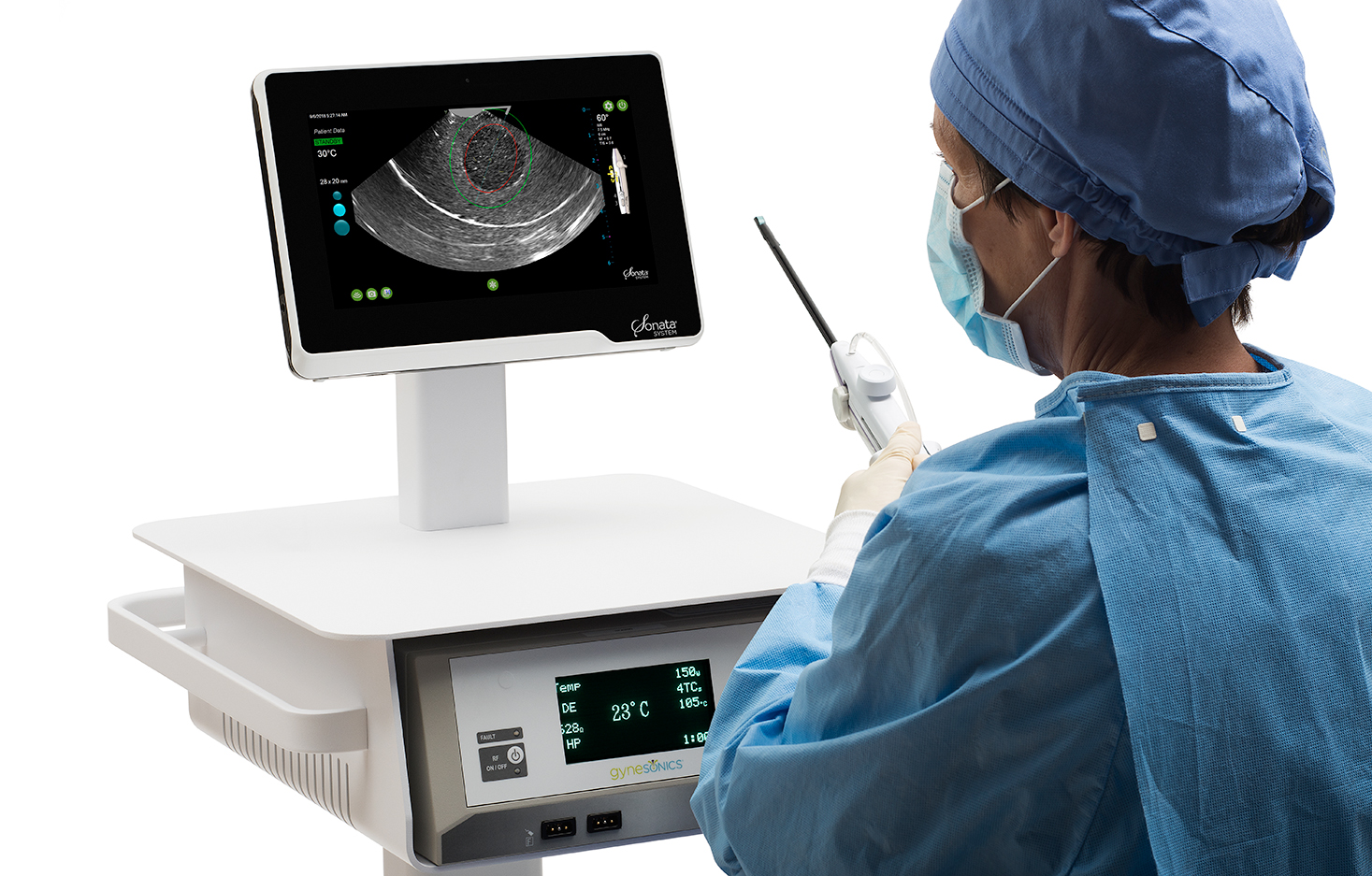
Under a new pilot program, Brigham and Women’s Faulkner Hospital is the first hospital in Massachusetts to offer the incision-free Sonata treatment for women suffering from debilitating symptoms caused by uterine fibroids.
Fibroids are benign growths in the uterus. They are very common in women of child-bearing age and can range in size from a grape to a grapefruit. In the United States, around 70 percent of white women and more than 80 percent of Black women will have uterine fibroids before the age of 50. Not all fibroids require treatment, but symptoms may include heavy and painful periods that interfere with daily activities.
“For many women, deciding on the right treatment for their fibroids can be a difficult decision,” says BWFH’s Chief of the Division of Gynecology Dr. James Greenberg. “In severe cases, some women choose to have a hysterectomy. In less severe cases, some women choose to do nothing at all. Here at BWFH, we offer several options that are less invasive than hysterectomy while preserving a woman’s fertility but still provide substantial symptom relief. The Sonata treatment is a new option that falls within that category that we believe will round out our full suite of treatment options.”
Dr. Greenberg explains there are several ways to treat fibroids that do not involve a hysterectomy: myomectomy and embolization. Myomectomy is the removal of fibroids. This can be done robotically, laparoscopically or via open surgery. Embolization is a radiology procedure that injects tiny particles through a catheter that destroy the fibroid by blocking its blood flow. There is also an option for laparoscopic radio-frequency ablation. While the outcomes are good, all of these options involve an incision and significant healing time.
“The Sonata treatment is similar to a laparoscopic radio-frequency ablation, but it’s done using a hysteroscope,” says Dr. Greenberg. “That means there is no incision.”
The treatment is performed as a day surgery in the operating room, but without general anesthesia. Sonata uses a miniaturized ultrasound probe at the tip of the handpiece to locate fibroids and treat them from inside the uterus. In a clinical trial, the Sonata treatment was proven to reduce symptoms while getting half of the treated women back to their normal activities the next day. The average return to normal activity was about two days.
“For patients with the largest fibroids, this isn’t the answer,” explains Dr. Greenberg. “But for patients with fibroids between one and six centimeters, it’s a wonderful option that provides symptomatic relief without an invasive surgery and long recovery.”
Dr. Greenberg is currently accepting new patients, offering the Sonata treatment on a trial basis. “If the results I see are as good as those seen in the larger clinical trial, I will be thrilled to add the Sonata treatment to the options we offer our patients,” he says.
Are you suffering from the symptoms of uterine fibroids? Call Dr. Greenberg’s office at 617-983-7003 to make an appointment to discuss the treatment option that’s best for you.
Looking for more news from BWFH? Go to News to find articles about health, updates to our programs and services and stories about staff and patients.
Go to News